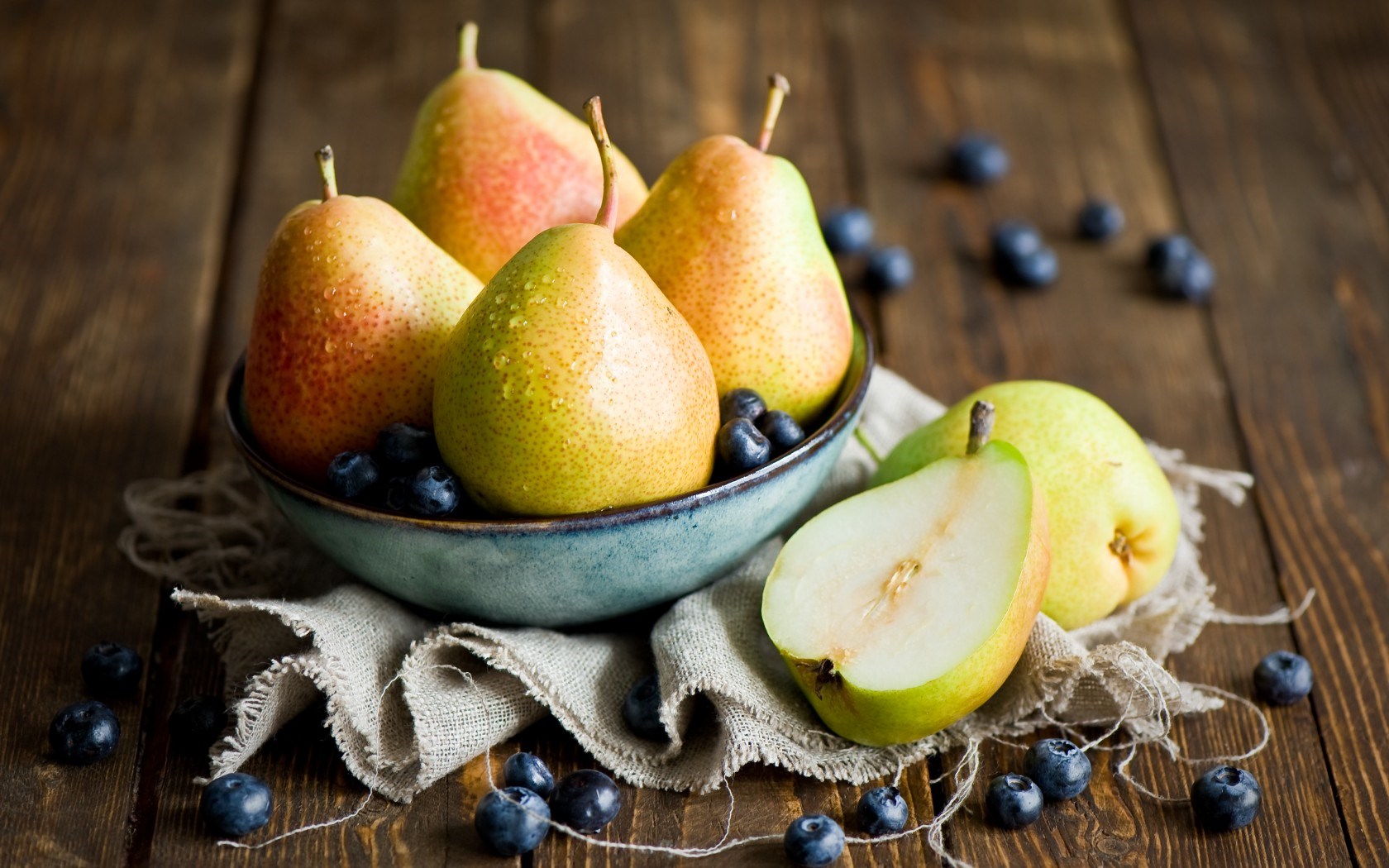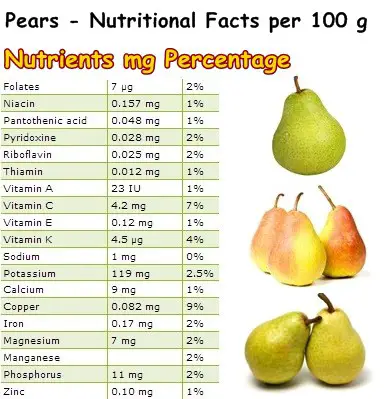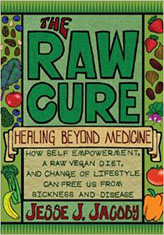
The health benefits of pears.
Pears should not be overlooked as an everyday, affordable fruit, they are packed with phytonutrients, in fact along with apples they are ranked as the second highest source of flavonoids amongst all fruits and vegetables.
Pears are a member of the rose family, which of course includes roses, but also, apples, cherries, plums, raspberries and almonds to name but a few. There are more than 3000 varieties of pear world wide and they come in an array of colours including red, yellow, green and brown. The skin on the pear contain about half of the total fiber content , as well as three to four times as many phytonutrients as the flesh; these include antioxidant, anti-inflammatory and anti-cancer nutrients.
Pears have been around in different forms since around 1000 BC, and while Europe was once the main supplier of pears, China has now become the worlds largest grower of pears, supplying a whopping three-quarters of the worlds production.
Pears are an excellent source of dietary fiber, which is predominantly non-soluble, this means it acts to regulates the bowels and is easily digestible. Pears have been used in traditional medicine to treat ailments, such as colitis, gallbladder disorders, gout and water retention.
The phytonutrients found in pears offers antioxidant and anti-inflammatory benefits, which means the benefits of consuming pears on a regular basis may lead to a decreased risk of several chronic diseases and inflammation, including heart disease and type two diabetes.
Pears have shown promising outcomes in protecting us from developing type two diabetes, this is as a direct result from flavonols which include kaempferol and quercetin, as well as anthocyanins (found in red skin varieties), all of which improve insulin sensitivity.
The benefits to reducing heart disease come from the fiber, which binds to bile acids within the gut, reducing the production of cholesterol. A reduction in the risk of heart disease is not the only benefit of the fiber binding to bile acids, pear fiber can also bind to secondary bile acid, which, in excessive amounts can increase the risk of colorectal cancer. Fiber is not the only benefit, the phytonutrients, especially cinnamic acid has also been shown to decrease gastric and oesphageal cancer. Therefore, pears can aid in the risk reduction of cancer development.

Nutritional content of Pears.

A quick look at some of the top nutrients found in pears
Copper - Mineral
- Helps maintain blood volume
- Produces energy in your cells from carbohydrates
- Supports the building of strong tissue, including hair and nails
- Involved in the manufacturing of collagen
- Helps to maintain a healthy balance of cholesterol
- Assists in the prevention of premature ageing
Vitamin C
- Supports the immune system
- Increases iron absorption
- Protects cells from oxidating damage
- Helps reduce the risk of heart disease, including coronary heart disease and stroke
- Helps in the formation of collagen, carnitine, and catecholemines
Vitamin K
- Promotes normal healthy clotting
- Prevents heart disease and arterial calcification
- Improves vascular health, leading to fewer varicose veins
- Maintains healthy bones
- Acts as an adjunct to vitamin D
- Helps to reduce the risk of developing prostrate cancer, lung cancer, liver cancer and leukaemia
Pyridoxine - Vitamin B6
- Protects the immune system
- Maintains a healthy metabolism
- Helps to produce energy from food
- Promotes healthy hormones
- Maintains healthy cells
- Assists in the absorption of vitamin B12
- Improves neurological function
- Promotes healthy brain development
- Reduces premenstrual symptoms
- Helps to prevent atherosclerosis and heart disease
Potassium - Mineral
- Supports a healthy nervous system
- Helps maintain healthy blood pressure
- Maintains a healthy kidney function
- Regulates fluid balance
- Lowers the risk of cardiovascular disease
- Helps to improve bone and muscle health
- Helps to reduce anxiety
Manganese - Mineral
- Supports the formation of healthy bones through absorption of calcium
- Supports collagen production
- Helps with blood sugar control
- Contributes to the prevention of oxygen related damage and damage from ultraviolet (UV) light
- Antioxidant, fights free radical damage. Diets low in manganese have been linked to skin problems and asthma
- proper functioning of the thyroid gland
- Promotes metabolism of fats and carbohydrates
Phosphorus - Mineral
- Maintains healthy cell function
- Helps in maintaining healthy strong bones
- Helps to release energy from food
- Promotes a healthy acid-base balance
- Helps to facilitate digestion
- Helps in the synthesis of protein


 Articles by subject
Articles by subject Recent Articles
Recent Articles





